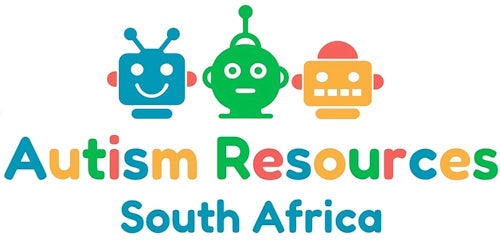Embracing the Autistic Sense of Humour
Jaco de GoedeWhat do you call a stick with Autism?
An autistic, of course!
Laughter, a universal human experience, brings joy and connection to our lives. While some may mistakenly assume that individuals on the autism spectrum lack a sense of humor, the reality is far from it. Autism grants a distinctive perspective on humor, paving the way for a unique and valuable approach to laughter.
Laughter as a Genuine Expression:
Contrary to popular belief, autistic people do not lack a sense of humor; rather, their humor manifests in authentic and unfiltered ways. Unlike neurotypicals who may engage in "social interaction" laughter as a means of politeness or manners, autistic individuals primarily laugh when they genuinely find something funny. This difference is not indicative of a diminished sense of humor; rather, it highlights the authenticity and sincerity of their laughter.
Autistic children, for instance, may question the uniform laughter at the cinema, preferring to laugh only when something genuinely tickles their funny bone. Understanding this distinction is vital to appreciating the unique way autistic individuals experience humor.
Random Laughter: An Amusing Trait:
Autistic individuals, like neurotypicals, find many things highly amusing, leading to frequent outbursts of laughter. These individuals may punctuate their sentences with laughter, often because they have amusing thoughts in their minds. Such spontaneous bursts of laughter can be endearing and add to the charm of their sense of humor.
In contrast to society's norms, where laughter is expected to be controlled and timed, random laughter can be a delightful expression of their distinct humor. While it may lead to some awkward moments, understanding the unforced and spontaneous nature of their laughter can help break barriers of misconception.
Nervous Laughter as an Emotional Coping Mechanism:
Communication and emotional regulation challenges are common among autistic individuals. As a result, some may resort to nervous laughter as a coping mechanism to regulate emotions and alleviate anxiety. This laughter may manifest even in somber situations, leading to misunderstandings and potential discomfort for others.
Understanding the connection between nervous laughter and emotional regulation can foster empathy and reduce judgment. Creating an inclusive environment that allows autistic individuals to express their emotions authentically can enhance their sense of belonging and emotional well-being.
Literal Interpretations and Humor:
Autistic individuals may experience difficulties with certain types of humor due to their tendency to interpret language literally. While they may enjoy humorous stories and real-life anecdotes, jokes relying on repetitive punchlines or contrived structures may be challenging to grasp.
Their unique perspective on language and meanings might lead to a different interpretation of punchlines, resulting in the humor being lost. Acknowledging these challenges can open doors to new ways of creating and sharing humor that resonate with autistic individuals.
Autism does not rob us of our sense of humor; it merely paints laughter with a distinct brushstroke. Rather than perceiving autistic laughter as lacking, celebrate the authenticity and charm it brings to the world of humor. By understanding and embracing the uniqueness of autistic laughter, we can challenge misconceptions and create an inclusive society that appreciates diverse perspectives.
Just as a stand-up comedian provides us with humor or from an outsider's perspective, autistic individuals have something new, fresh, and unique to offer in the world of laughter. So, let us celebrate and cherish the individuality of autistic humor, allowing it to enrich our lives with its unfiltered mirth and the beauty of seeing the world through a different lens.
In closing, here is one of my autistic son's favourite jokes:
Two scientists walk into a bar.
The first scientist orders H2O.
The other says, “I’ll have H2O too.”
The second scientist dies.
